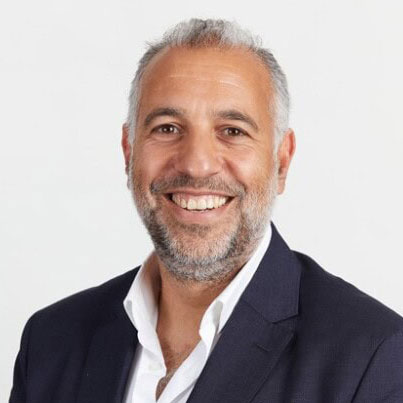
Mr James Nicopoullos
Consultant Gynaecologist, Sub-Specialist in Reproductive Medicine and Surgery, and Medical Director, Lister Fertility Clinic
Misconceptions and stigma around infertility often lead to a lack of male support. Consultant gynaecologist and medical director opens the conversation, highlighting the importance of inclusive support.
Men often take a backseat when it comes to fertility investigations, with the focus traditionally placed on women’s health. However, Dr James Nicopoullos, Consultant Gynaecologist and Medical Director of Lister Fertility Clinic, explains why this focus needs to change.
Addressing the stigma of fertility
“Infertility is often thought of as a woman’s issue, but that simply isn’t the case,” explains Dr Nicopoullos. “Around half of cases of infertility involve male factors, yet men are historically underrepresented within investigation and support. Too often, couples are pushed into IVF without a comprehensive assessment of the man’s health.”
The emotional toll of
infertility is immense.
Importance of inclusive support
Fertility treatment is notoriously difficult — not just physically, but emotionally, mentally, socially and financially. “The emotional toll of infertility is immense, with some studies suggesting that the stress levels can be comparable to those experienced in serious medical conditions,” says Dr Nicopoullos.
While support services are often provided to women, sometimes, men can feel left behind. “Men can feel excluded from parts of the process, including emotional support. However, men’s health is a crucial component of fertility and should be addressed from the start,” he adds. “Alongside evidence-based treatments, some patients explore therapies like acupuncture or reflexology. Evidence on outcomes is mixed, but they can help reduce stress. The minefield of online information can be challenging, which is where we can help.”
Open-door counselling services
HCA Healthcare’s Lister Fertility Clinic is one of the UK’s longest-established IVF units with a 37-year history and over 23,000 babies born. Emotional support is seen as integral to treatment, and the clinic offers every patient free access to highly skilled and experienced counsellors before, during and even years after treatment.
“Our open-door policy means people never have to face it alone,” assures Dr Nicopoullos. “The chance of having a baby with IVF is highly variable and reduces with age. But success doesn’t just depend on the biology; it also depends on how much you can manage physically, emotionally and financially.”
He concludes: “While our clinic improves the medical chances, emotional support gives patients the stamina to return for more cycles, empowering them to keep going.”



